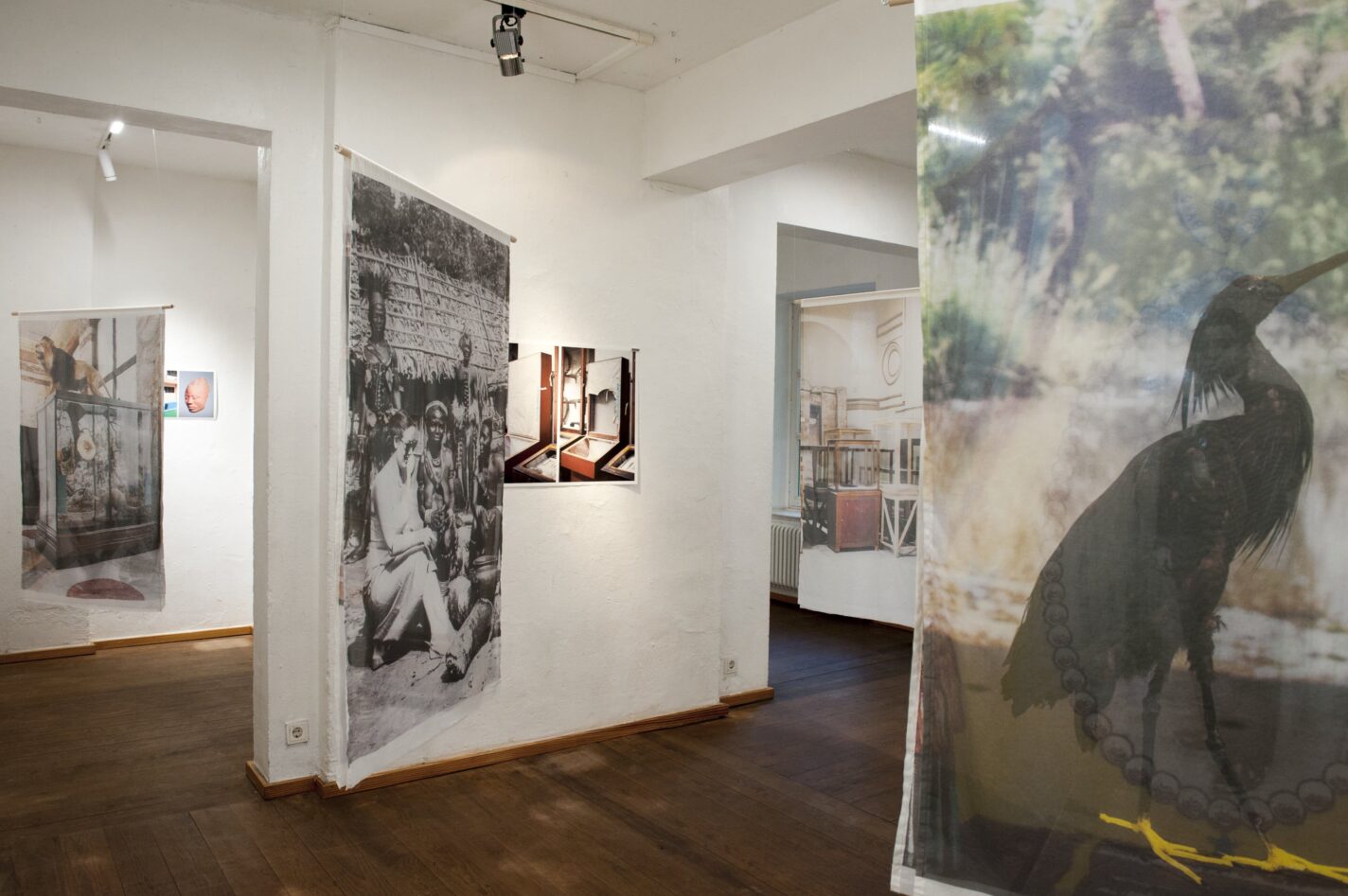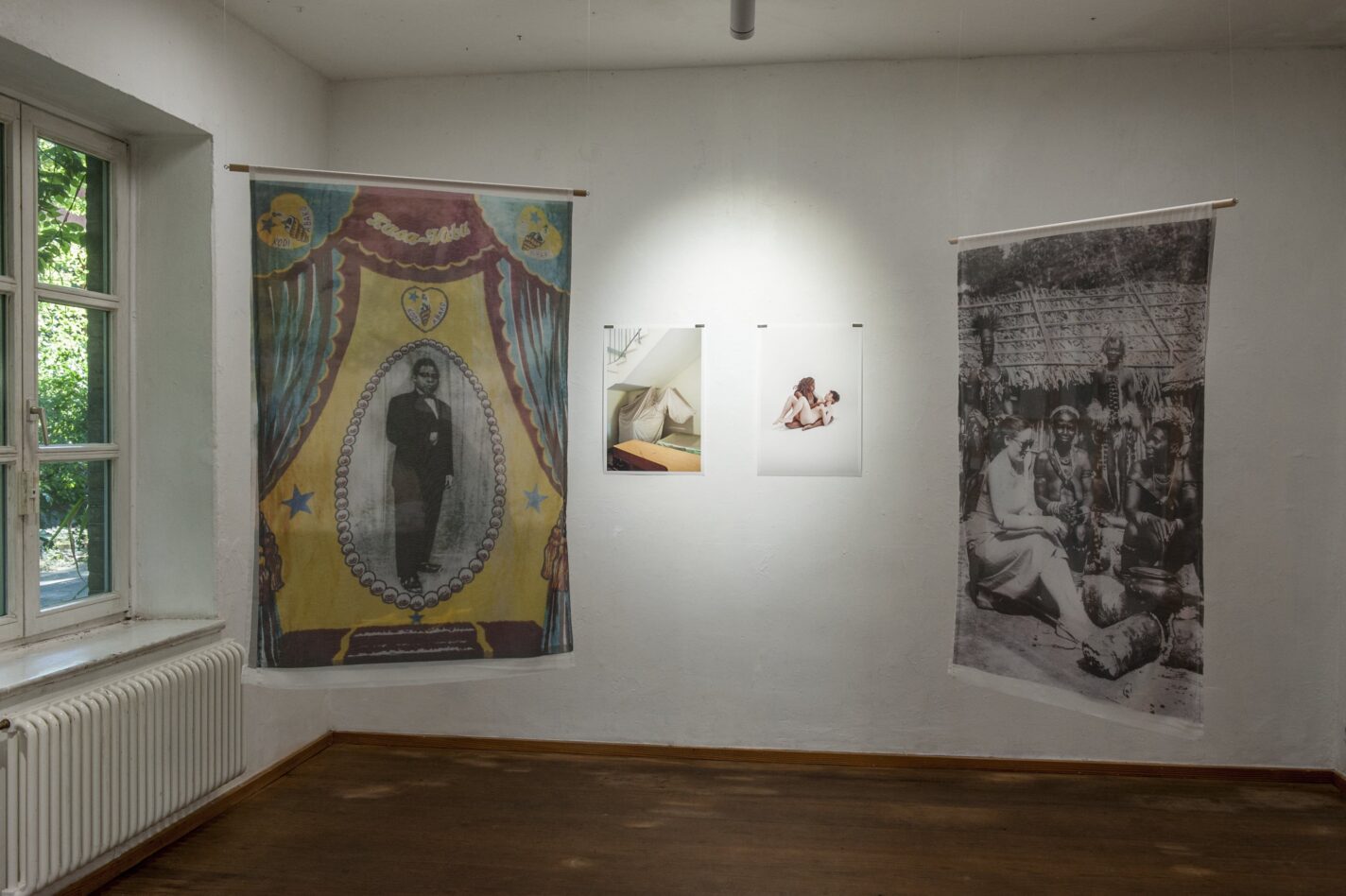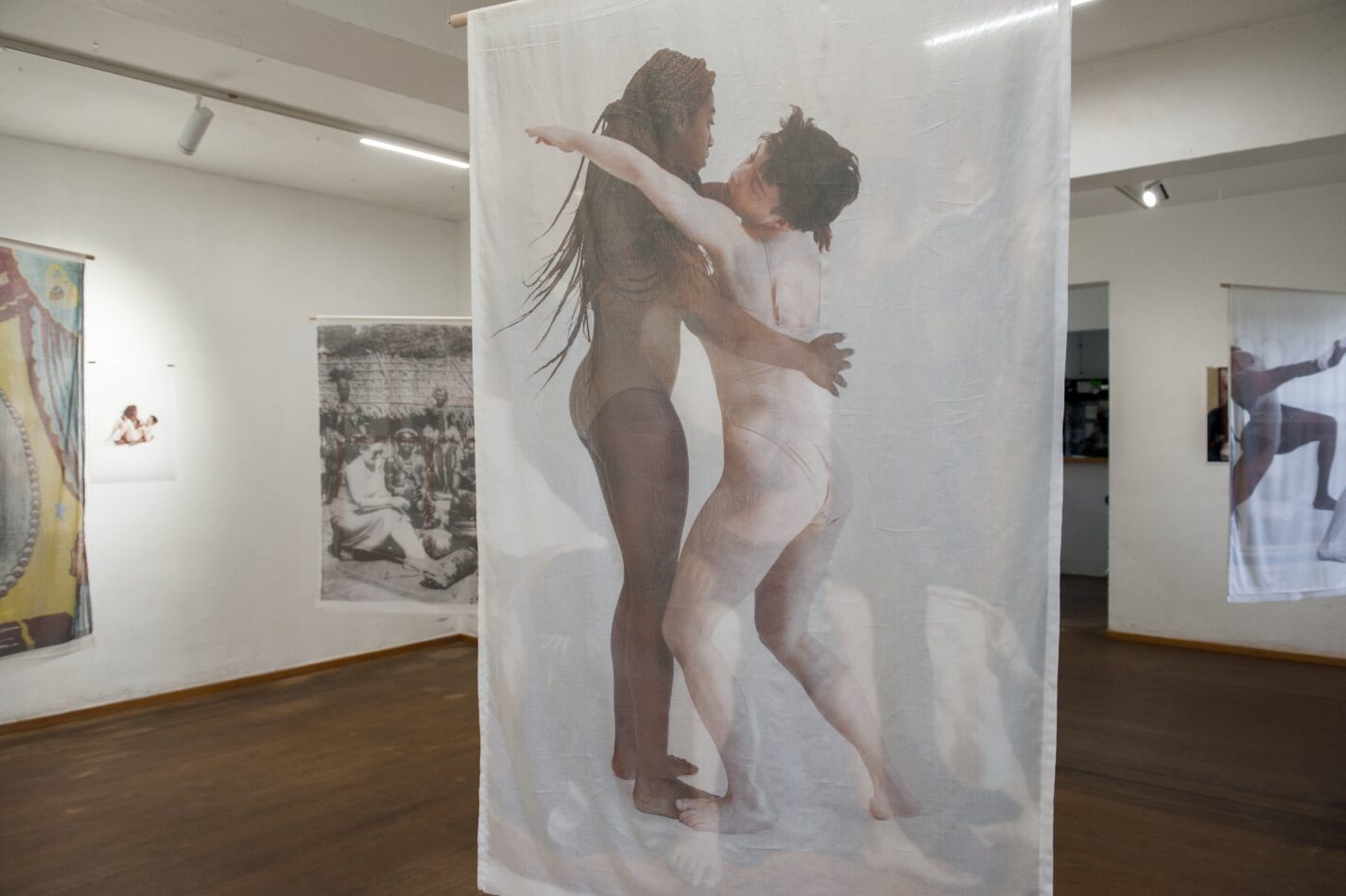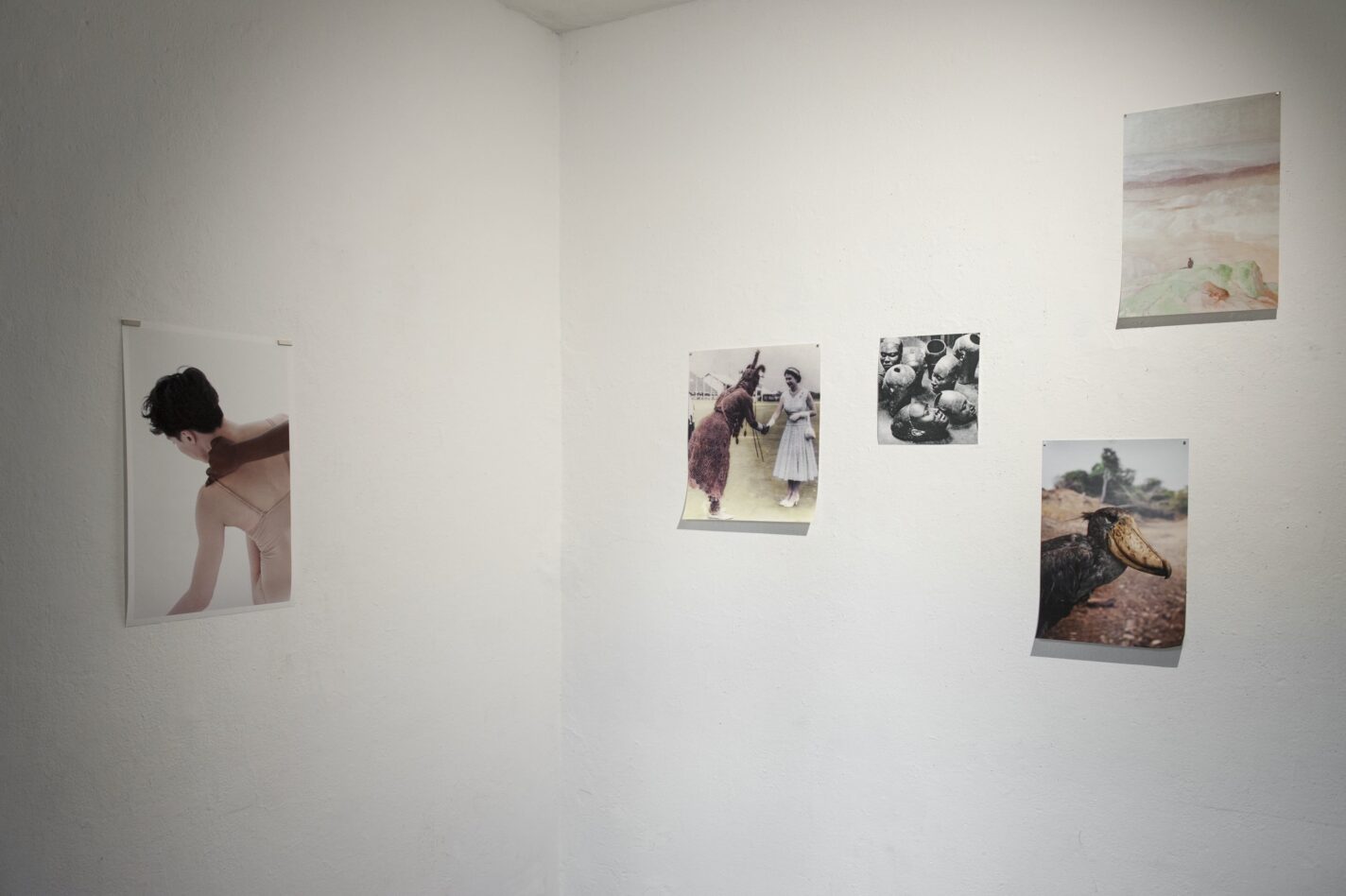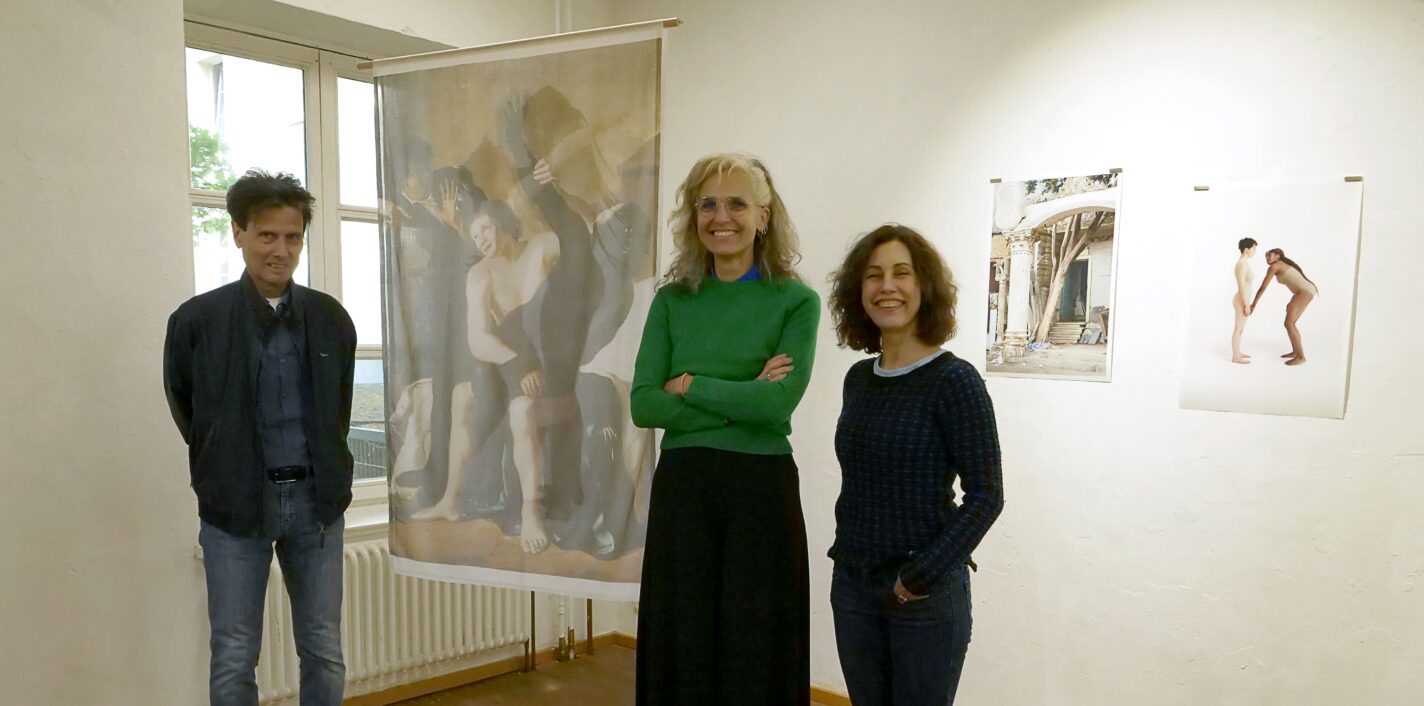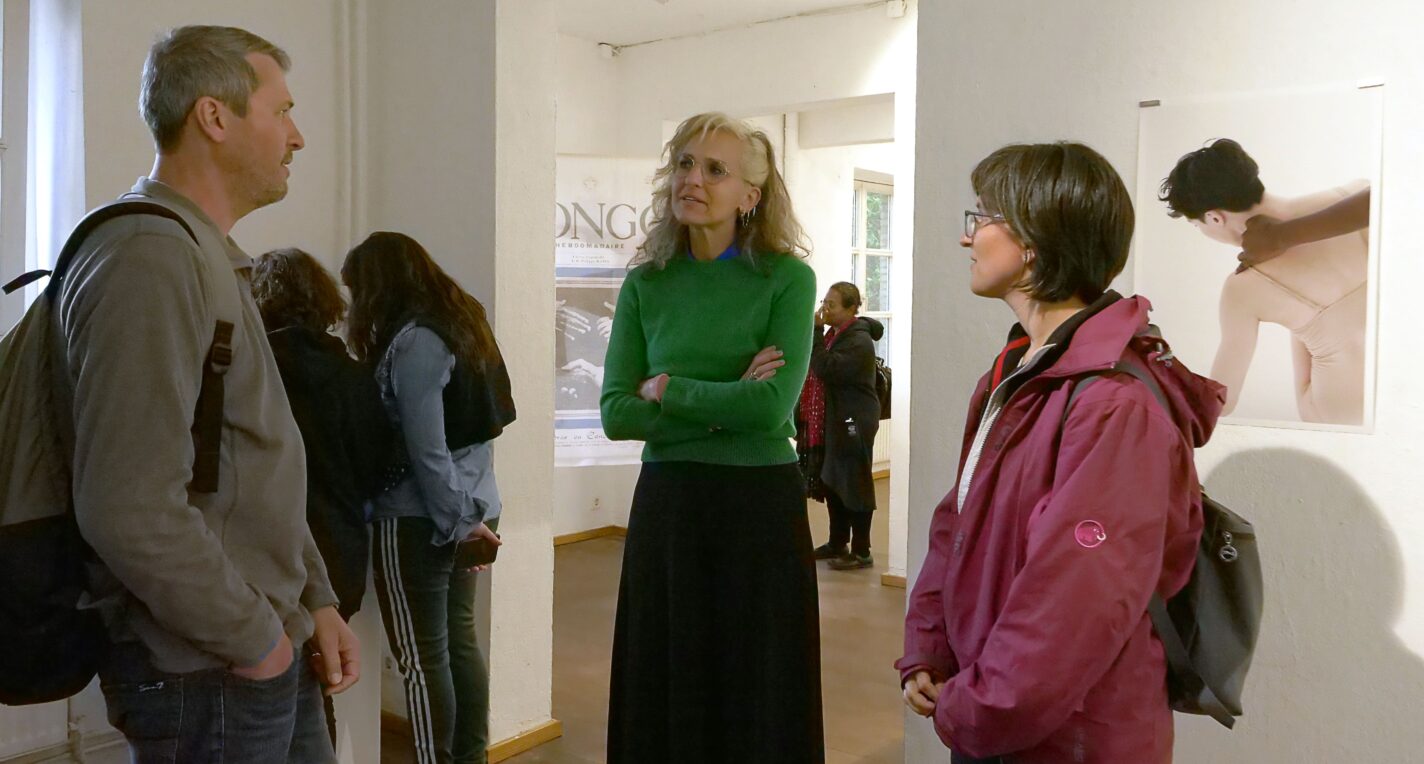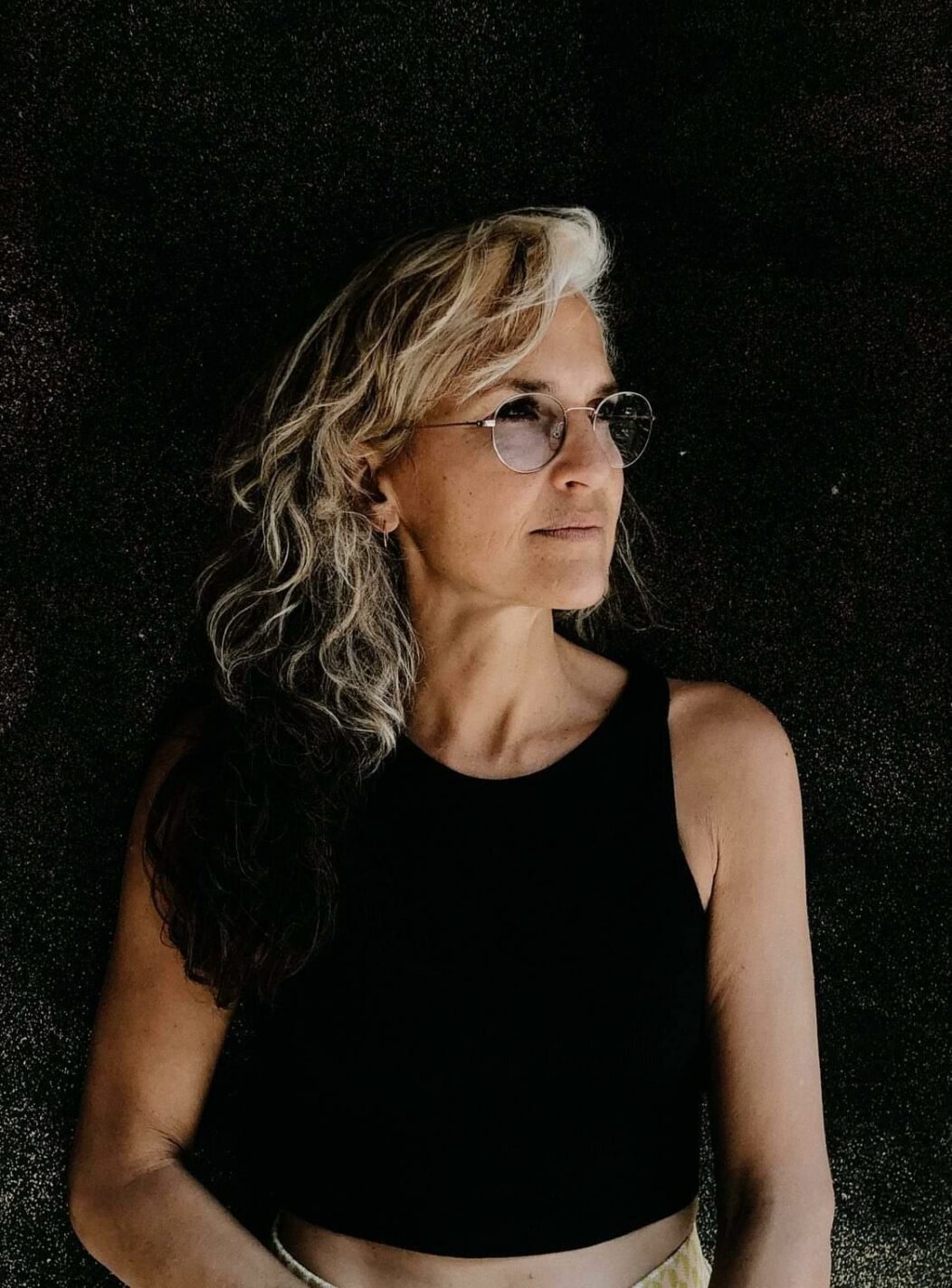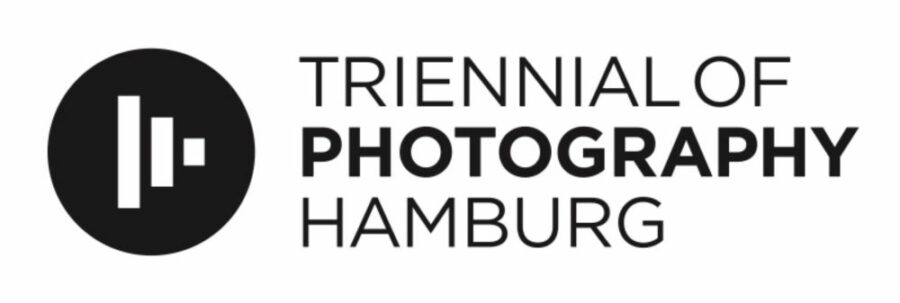Ocupar un Espacio implica una interacción con el entorno y con los sujetos/entes que lo habitan. Durante mi residencia artística en Vorwerk-Stift en Hamburgo (Alemania) he podido reflexionar ante el acto de ocupar/interaccionar/dialogar/narrar/activar/respetar un espacio, pudiendo trasladar dicha experiencia a mi proyecto work-in-progress USUS FRUCTUS ABUSUS.
Partiendo de la filosofía de esta casa en cuanto a fluidez como lugar transitorio, de horizontalidad; equilibrio entre la autoridad y la responsabilidad; la asimetría; el cuidado a la alteridad, a la diferencia y la responsabilidad colectiva generando gracias a ello espacios antirracistas, ecofeministas, anticlasistas, antiLGTBQ+fobia y en contra de cualquier tipo de discriminación; refuerzo mi investigación en cuanto al posicionamiento del museo como espacio seguro e inclusivo, analizando los procesos decolonizadores en los que algunos están inmersos y cuestionando sus estrategias. ¿Es el modelo de museo occidental universal?
La creación de un imaginario es una responsabilidad innata del que vuelve a casa. Si esta información se institucionaliza, se muestra como rareza exótica, el efecto es el contrario al deseado: en vez de acercarnos al “Otro”, cada vez se convierte en algo más extraño, más lejano y, posiblemente, más primitivo. Surgiendo de esta idea, por construcción de conocimiento desde hace siglos, que lo primitivo es inferior en el escalafón de las teorías retrógradas, obsoletas y, casi siempre, racistas y supremacistas de evolución. En un mundo globalizado como es el actual, provocar este ciclo de lectura errónea es algo urgente a mejorar.
Los procesos colonizadores no son únicamente geopolíticos, también sucumben en la mente a través del lenguaje, del concepto de modernidad, de los cánones de belleza, de la relación del individuo con una espiritualidad impuesta, etc. y, como consecuencia, aparece la legitimización de la posesión del cuerpo del “Otro”, siendo esta una de las formas más hirientes y denigrantes que existen hacia el ser humano.
Como artista visual, valoro mi acción como una forma de intercambio emocional, sin olvidar las cuestiones éticas y políticas en torno a la representación, produciendo ejercicios de análisis y posicionamiento, de denuncia y activismo, de reconocimiento de responsabilidad y de privilegios, reforzando de este modo mi discurso en constante construcción.
Esta fase me llevó a investigar sobre la maquiavélica creación de la Idea de África, en construcción desde hace siglos, y el refuerzo de un imaginario denigrante (proyectos desarrollados durante mis 3 años en Mali). En consecuencia, y casi irremediablemente, me sumergí en estas transformaciones estudiando acerca del colonialismo, su devastadora crueldad en muchos casos, así como los interesantes, convulsos y emocionantes procesos de decolonización y las estrategias neocolonizadoras, para llegar a las voces: de las mujeres, de la construcción de la raza y del expolio.
¿Es posible pensar en un uso decolonial del museo?; ¿Cómo producir un saber capaz de dar cuenta de los agenciamientos históricos de los sujetos subalternizados por la colonización?; ¿Cómo entender el actual proceso de “globalización” del arte y su impacto sobre las relaciones entre legitimación histórica, capitalismo y crítica de occidente?; ¿Qué diferencias habría entre el museo deoccidentalizado y el museo decolonial? y ¿Qué estrategias hay que seguir para llevar a cabo una restitución del arte expoliado?
Einen Raum einzunehmen bedeutet Interaktion mit der Umgebung und mit den Einzelheiten/Einzelteilen, die ihn bewohnen. Während meines Künstleraufenthalts im Vorwerk-Stift in Hamburg (Deutschland) konnte ich über den Akt des Einnehmens /Interagierens/Dialogs/Erzählens/Aktivierens/Respektierens eines Raums nachdenken und diese Erfahrung auf mein in Arbeit befindliches Projekt USUS FRUCTUS ABUSUS übertragen. Ausgehend von der Philosophie dieses Hauses in Bezug auf Transparenz – als transitorischer Ort -, Keine Hierarchie – Gleichgewicht zwischen Autorität und Verantwortung -, Asymmetrie – Sorge für das Anderssein, für die Differenz – und kollektive Verantwortung für die Schaffung von antirassistischen, ökofeministischen, antiklassistischen, Anti-LGTBQ+Phobie-Räumen und gegen jede Art von Diskriminierung, verstärke ich meine Forschung zur Positionierung des Museums als sicherer und inklusiver Raum, indem ich die Dekolonisierungsprozesse analysiere, in die einige eingetaucht sind, und ihre Strategien hinterfrage. Ist das westliche Museumsmodell universell?
Die Entstehung bestimmter Vorstellungen liegt in der Verantwortung desjenigen, der nach Hause zurückkehrt. Wenn diese Informationen institutionalisiert und als exotische Rarität dargestellt werden, hat das den gegenteiligen Effekt: Anstatt uns dem «Anderen» näher zu bringen, wird es immer fremder, weiter entfernt und möglicherweise primitiver. Wie wir seit Jahrhunderten wissen, steht das Primitive ganz unten auf der Stufenleiter der Evolutionstheorien – rückständig, veraltet und fast immer rassistisch und überheblich. In der heutigen globalisierten Welt ist es dringend notwendig, diesen Kreislauf der Fehlinterpretation zu durchbrechen.
Kolonisierungsprozesse sind nicht nur geopolitisch, sie erliegen auch dem Verstand durch die Sprache, durch das Konzept der Modernität, durch den Schönheitskanon, durch die Beziehung des Individuums zu einer aufgezwungenen Spiritualität… aber als Folge/Konsequenz dessen, kommt es zu einem legitimisierten Besitz des Körpers des Anderen, welches eine der gröβten Verletzungen und Demütigungen ist.
Als bildende Künstlerin schätze ich mein Handeln als eine Form des emotionalen Austauschs. Ohne dabei die ethischen und politischen Fragen rund um die Repräsentation zu vergessen, produziere ich Übungen der Analyse und Positionierung, der Anprangerung und des Aktivismus, der Anerkennung von Verantwortung und Privilegien und stärke dadurch meinen Diskurs anhand von konstanter Weiterentwicklung. Dieser Prozess hat mich dazu gebracht, die machiavellistische Kreation der Idee von Afrika, die über Jahrhunderte hinweg aufgebaut wurde, und die Bekräftigung eines erniedrigenden Bildes zu untersuchen (Projekte, die während meiner drei Jahre in Mali entwickelt wurden). Folglich und fast unausweichlich näherte ich mich dem Studium des Kolonialismus, seiner verheerenden Grausamkeit in vielen Fällen, sowie den interessanten, turbulenten und aufregenden Prozessen der Dekolonisierung, den neokolonisierenden Strategien, um zu den Stimmen der Frauen, der Bildung einer Vorstellung von Abstammung, der Ausplünderung zu gelangen.
Ist es möglich, an eine dekoloniale Nutzung des Museums zu denken? Wie kann Wissen geschaffen werden, das in der Lage ist, das historische Handeln der durch die Kolonialisierung untergeordneten Subjekte zu berücksichtigen? Wie kann der gegenwärtige Prozess der «Globalisierung» der Kunst und seine Auswirkungen auf die Beziehungen zwischen historischer Legitimation, Kapitalismus und westlicher Kritik verstanden werden? Was sind die Unterschiede zwischen dem von westlichen Vorstellungen befreiten Museum und dem dekolonialen Museum?Welche Strategien sollten verfolgt werden, um eine Rückerstattung der enteigneten Kunst durchzuführen?
Occupying a Space implies interaction with the environment and with the subjects/entities that inhabit it. During my artist residency at Vorwerk-Stift in Hamburg (Germany) I?ve been able to reflect on the act of occupying/interacting/dialoguing/narrating/activating/respecting a space, transferring the experience to my work-in-progress project USUS FRUCTUS ABUSUS. Starting from the philosophy of this house in terms of fluidity -as a transitory place-, horizontality -balance between authority and responsibility-, asymmetry -care for otherness, for difference- and collective responsibility to generate anti-racist, ecofeminist, anti-classist, anti-LGTBQ+phobia spaces and against any kind of discrimination; I reinforce my research on the positioning of the museum as a safe and inclusive space, analysing the decolonising processes in which some are immersed and questioning their strategies. Is the Western museum model universal?
The creation of imaginary is an innate responsibility of the returnee. If this information is institutionalized, shown as an exotic rarity, the effect is the opposite of the desired one: instead of bringing us closer to the «Other», it becomes increasingly strange, more distant and, possibly, more primitive. And, as we have known for centuries, primitive is lower on the ladder of theories – backward, obsolete and, almost always, racist and supremacist – of evolution. In today’s globalised world, provoking this cycle of misreading is an urgent matter for improvement.
Colonizing processes are not only geo-political, they also succumb to the mind through language, concepts of modernity, beauty canons, through the relationship of the individual to an imposed spirituality…. but the legitimization of the possession of the body of the Other is the most hurtful and demeaning form that exists.
As a visual artist, valuing that my action is a form of emotional exchange, without forgetting the ethical and political issues around representation, producing exercises of analysis and positioning, of denunciation and activism, of recognition of responsibility and privilege, I reinforce my discourse in constant construction. This process led me to investigate the Machiavellian creation of the Idea of Africa built up over centuries and the reinforcement of a denigrating imaginary (projects developed during my 3 years in Mali). Consequently and almost irremediably, I approached the study of colonialism, it’s devastating cruelty in many cases, as well as the interesting, convulsive and exciting processes of decolonisation, the neo-colonising strategies, …to get to the voices of women, the construction of race, the plundering.
Is it possible to think of a decolonial use of the museum? How to produce knowledge capable of accounting for the historical agency of subjects subalternised by colonization? How to understand the current process of «globalisation» of art and its impact on the relations between historical legitimation, capitalism and Western critique? What are the differences between the de-Westernised museum and the decolonial museum? What strategies should be followed to carry out a restitution of looted art?


 Hamburgo
Hamburgo